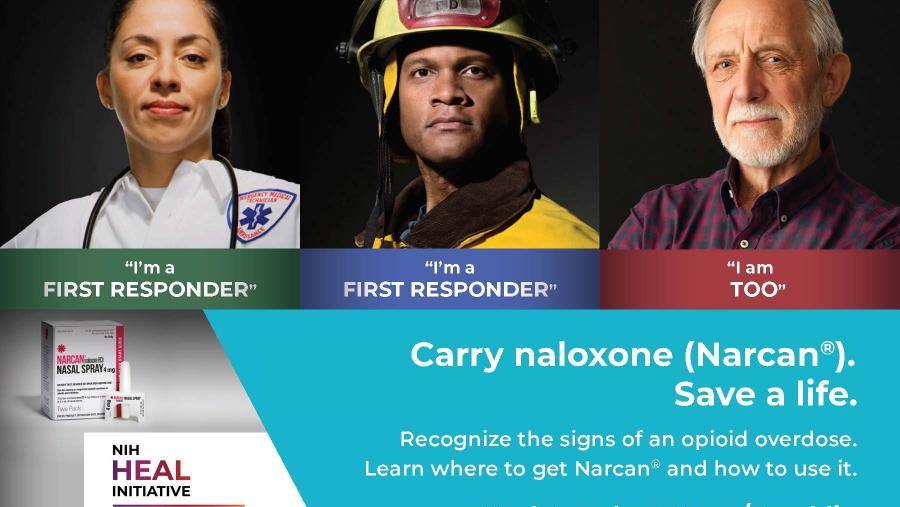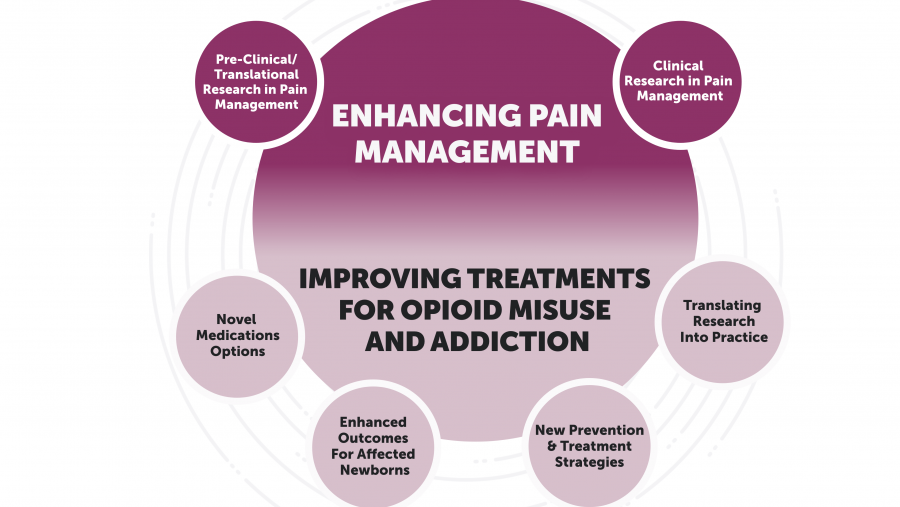Training the Next Generation of Researchers in HEAL
Overview
The Research Need
There is an urgent need for more research to establish best practices in pain and addiction research. However, there is a limited research workforce pipeline to meet NIH’s long-term goals for providing effective pain and addiction treatment. Several challenges make it hard for researchers to begin working in these fields. Strengthening system capacity by investing in training the next generation of researchers to do this work is essential to ensuring that Americans have access to safe and effective evidence-based treatments for pain and addiction.
About the Program
This program funds workforce and training grants to build capacity for conducting the wide range of projects within the NIH HEAL Initiative®’s portfolio. These grants aim to increase the pain and addiction research workforce by supporting:
- Post-doctoral fellows
- Early career researchers who have trained within their respective fields or are transitioning into the pain and/or addiction fields
- Mid-career mentoring and/or research awards
- Researchers from diverse backgrounds
- Early and mid-career scientists receiving training in therapeutic development
HEAL has also established a network to connect all NIH-funded pain researchers (the Positively Uniting Researchers of Pain to Opine, Synthesize, & Engage, or PURPOSE network). HEAL is committed to helping train the next generation of pain and addiction researchers, not only to support research, but also to help improve the clinical care for people with lived experience with pain and addiction.
Open Funding Opportunities
Program Details
To date, through the NIH HEAL Initiative, NIH has contributed $18.1 million for this program through 43 awards.
HEAL National K12 Clinical Pain Career Development Award (HEAL K12)
The HEAL K12 is requesting applications for a mentored career development program to focus on training and conducting clinical pain research. Learn more.
Research Examples
Research activities in this program include:
- Creating a network to connect pain researchers across the continuum of pain research (basic, translational, and clinical researchers), from all disciplines and at all career levels
- Fostering the research interests and experiences of residents and postdoctoral fellows in pain and addiction research
- Supporting early and mid-career scientists so they can receive hands-on experience in therapeutic development
- Ensuring diversity within the pain and addiction research workforce
- Supporting and training novice pain and addiction researchers
- Providing career development awards in implementation science for substance use prevention

PURPOSE Network
Funded in 2022, PURPOSE stands for "Positively Uniting Researchers of Pain to Opine, Synthesize, & Engage” and is a digital platform to connect pain researchers.
- Cedars-Sinai Medical Center – California
- Columbia University New York Morningside – New York
- Neurovations Education – California
- New York University School of Medicine – New York
- University of California at Davis – California
- University of California-Irvine – California
- University of Iowa – Iowa
- University of Michigan – Michigan
- University of New Mexico – New Mexico
- University of North Carolina at Chapel Hill – North Carolina
- University of Washington – Washington
Funded Projects
Closed Funding Opportunities
Participating NIH Institutes, Centers, and Offices
- Eunice Kennedy Shriver National Institute of Child Health and Human Development (NICHD)
- National Cancer Institute (NCI)
- National Center for Complementary and Integrative Health (NCCIH)
- National Heart, Lung, and Blood Institute (NHLBI)
- National Institute of Arthritis and Musculoskeletal and Skin Diseases (NIAMS)
- National Institute of Dental and Craniofacial Research (NIDCR)
- National Institute of Diabetes and Digestive and Kidney Diseases (NIDDK)
- National Institute of Mental Health (NIMH)
- National Institute of Neurological Disorders and Stroke (NINDS)
- National Institute on Aging (NIA)
- National Institute on Alcohol Abuse and Alcoholism (NIAAA)
- National Institute on Drug Abuse (NIDA)
Application Process
The application period for the K12 Clinical Pain Career Development Award ended on March 1, 2023.
 U.S. Department of Health & Human Services
U.S. Department of Health & Human Services



